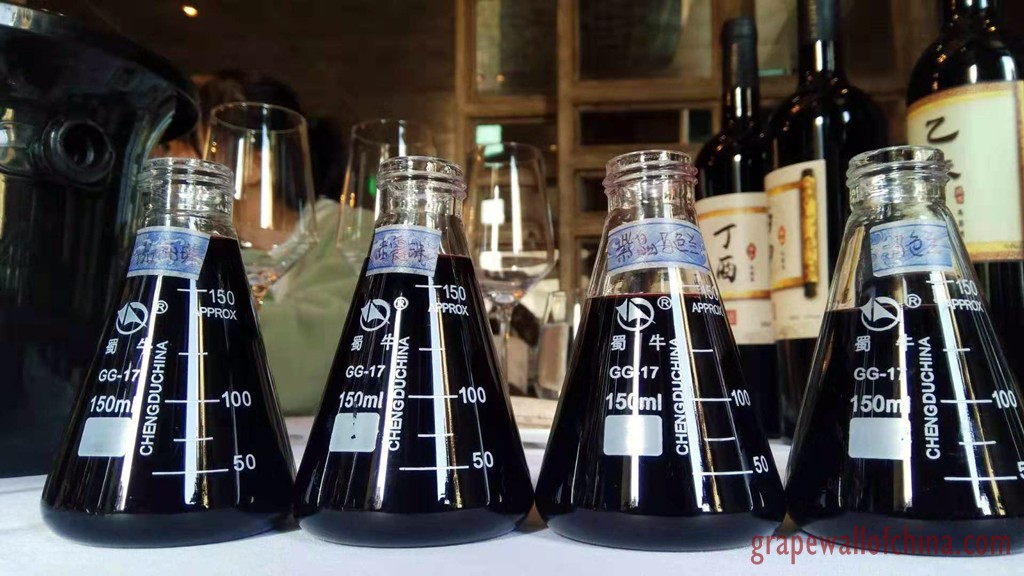Marselan is a top candidate for China’s feature grape but debate exists about whether this Cabernet Sauvignon and Grenache cross excels as a single variety wine or married into a blend.
On June 8, Tong Lili of Man Zhou Xiang Winery, the sole winemaker in China who specializes in Marselan, will lead a master lab at the second Wine to Asia fair in Shenzhen and help each attendee blend their own wine.
Tong has run these sessions all over China the past two years — see my post about one of the Beijing events — but this is the first time it is being held at a fair.
The lab will start with an intro to Marselan and a tasting of several wines that show regional styles, including Tong’s labels from Penglai in Shandong province and Huailai in Hebei province. Tong will then lead a “hands on” blending session, with each attendee given beakers of Marselan and other grape varieties. She will show how adding different varieties affects the structure, intensity, aroma and flavor of Marselan.
The master lab is limited to 25 seats and is a good chance to learn about Marselan, to explore regional styles and to understand how blending affects a grape rapidly gaining momentum in China. Crucially, attendees can decide if they enjoy Marselan as a swinging single or married to other grapes. (I will update on my media feeds when registration is open for this event. You can also followed the Wine to Asia LinkedIn page. You can also follow my account here.)
This year also marks the sixtieth birthday of Marselan. Paul Truel created the grape in southern France in 1961 with the aim of maximizing the structure and finesse of Cabernet Sauvignon and the high yields, color and disease resistance of Grenache. Marselan did not attract initial interest because the yields and berry size were too small during an age that prized quantity. But as the wine world’s focus on quality grew, Marselan began to spread, most notably from the 1990s.
Marselan is now commercially produced in over two dozen countries, including Brazil, Uruguay, France, Bulgaria, Brazil and Russia. Bordeaux’s wine council announced this year that Marselan was one of six new grapes varieties approved for the region.
Marselan first appeared in China in 2001 in Huailai County and has since spread across the country, with new labels regularly appearing and regional styles emerging. Chinese Marselan has earned dozens of medals at international wine contests and good reviews from critics. The wines tend to be fragrant, ripe, fruity and supple, and appeal both to wine newcomers and aficionados.
Tong’s master lab on June 8 follows her sold-out Marselan master class at the inaugural Wine to Asia last November. It includes support from this site, Grape Wall of China, both as part of its “local heroes” wine series and its project World Marselan Day, which is held each April 27, Paul Truel’s birthday.
Grape Wall has no sponsors of advertisers: if you find the content and projects like World Marselan Day worthwhile, please help cover the costs via PayPal, WeChat or Alipay.
Sign up for the free Grape Wall newsletter here. Follow Grape Wall on LinkedIn, Instagram, Facebook and Twitter. And contact Grape Wall via grapewallofchina (at) gmail.com.
